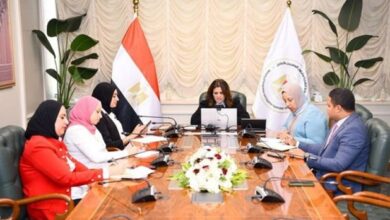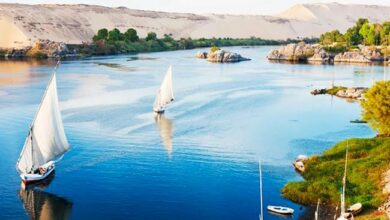As part of our Green Profile series, in which prominent figures discuss pressing environmental issues, Al-Masry Al-Youm spoke to Ismail Serageldin, director of the Library of Alexandria, about increasing concerns over water availability and management.
Al-Masry Al-Youm: As someone who has had a long and vast career, including several positions within the environment field (such as World Bank Vice President for Environmentally and Socially Sustainable Development, Founder and former Chairman of the Global Water Partnership (GWP), alongside receiving numerous environmental awards such as the Swaminathan Award for Environmental Protection awarded in 2010; what has been the most fulfilling work for you within this field, and why?
Ismail Serageldin: Working with youth, because of their commitment and idealism. I am committed to support them in achieving their dreams and goals.
Al-Masry: The most recent report by the Arab Forum for Environment and Development (AFED) released at the end of 2010 highlighted water scarcity as the most pressing environmental problem for the region. What is your take on this and what do you consider to be the right direction in moving forward?
Serageldin: Most people don’t seem to realize just how much water a human needs. In general, you may need a couple of liters to drink, and then a little bit to cook with and a bit to bathe with and so on. But fundamentally, the food you eat daily consumes about 2700 liters per day, per person. That’s almost a liter per calorie. So, the issue of food security is particularly important.
The net result is that many countries around the world are now going to be facing shortages and droughts. For a lot of people, access to water is going to be as important as access to oil is in more advanced economies. As I predicted back in 1995 when I said that the wars of the twentieth century were fought over oil and the wars of the next century will be fought over water, increasingly countries will be demanding more water—yet there is less water available.
And climate change brings wide swings between floods and droughts, making the management of water a particularly important issue for our times.
The Arab world, for example, has about five percent of the world’s population, but only one percent of the water. There is a huge shortage and thus we are a net food-importing region. For a time, and for a lot of people, that wasn’t too much of a problem. There was a belief that free international trade would provide. But when commodity prices spiked, suddenly a number of countries put export limits on food. And food importing countries got extremely worried about that.
Now, they are trying to develop new schemes such as purchasing large tracts of land—hundreds of thousands of hectares—for agriculture in other countries where there is more rain and more available water, and they will "export" the product to themselves.
There is, also, both in the Arab World and globally, a growing urban population clustered around river basins. Some 270 river basins are shared between two or more countries—and as populations grow, the per capita demand also grows. As demand becomes more severe, better management of these shared rivers will be required to prevent confrontations from occurring.
We need to be much more specific about water, including local changes in rain during the growing season and the moisture content in the ground.
Second, we need a much better understanding of where underground water is located, how big these sources are, and where aquifers are. And now we have the satellite technology to do this.
Third, we need countries to agree on the rules of managing international waters, whether rivers and lakes or underground reserves. That means taking existing conventions and going much further.
Finally, it is important to invest significantly in food security, not only from a humanitarian point of view, but because food production is by far the biggest user of water.
So, for example, desalination might be a solution for drinking water and maybe for industry in some areas, but the amount of water required for agriculture is too great—we really have to better manage our broad water resources. Together, all this must be coupled with a sustainable production system for agriculture and a fair trading system that is not subject to obstruction whenever prices start rising.
On another note, we have to start talking collaboratively about the quality of the water—not the quantity. If you start with the quantity, then immediately it’s a zero-sum game. What you take, I lose; what I take, you lose. But we can get countries to collaborate with each other around the proper management of river basins.
Why is that important? Our political boundaries make no sense from a natural point of view. The natural unit is the river basin—the water that flows into rivers and lakes, and eventually to the ocean. We need to have all people in that river basin collaborating in an effective manner, managing that precious resource among them. As with climate change and acid rain, we’re increasingly finding that many of our environmental boundaries don’t stop at political boundaries. Neither does water.
Al-Masry: What would be your message to today’s youth in trying to raise environmental consciousness?
Serageldin: The nature that we take for granted…is fragile, is at risk…and we, her children, are the ones who devour her bounty and tear her delicate gossamer webs apart. It is not enough to celebrate the earth and all its inhabitants: We must restore what we have destroyed.




